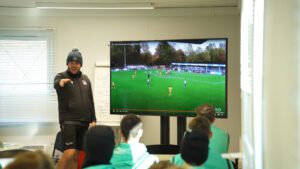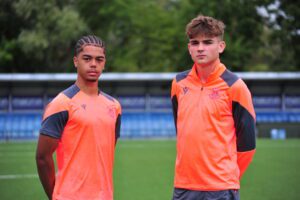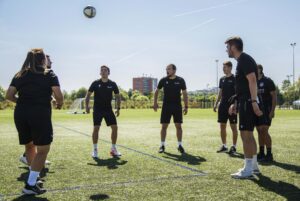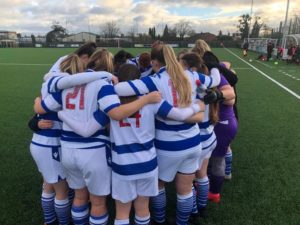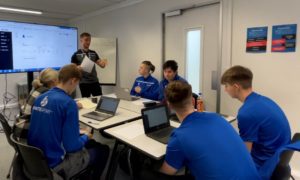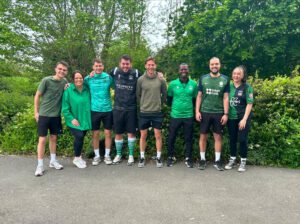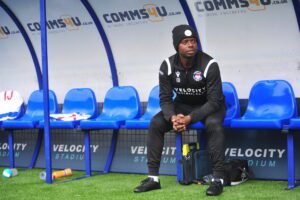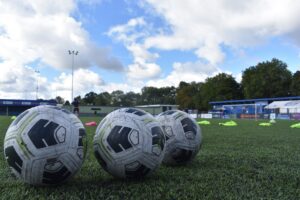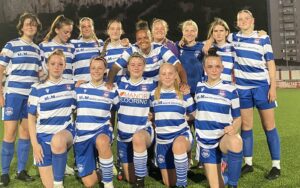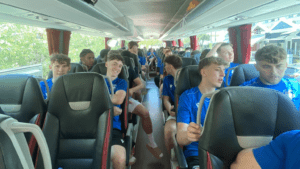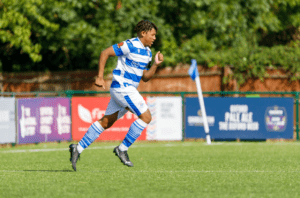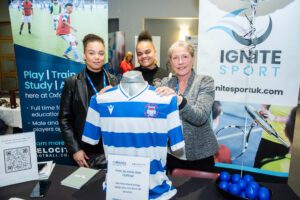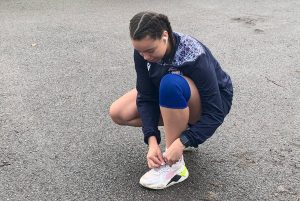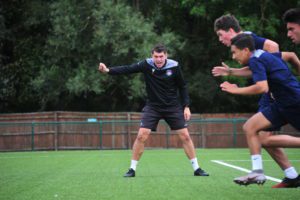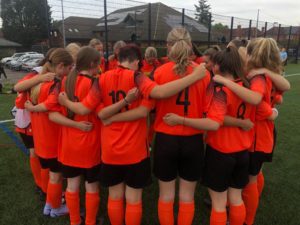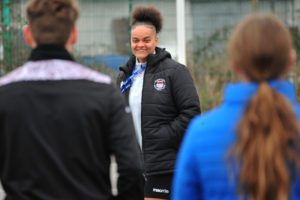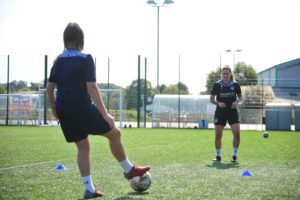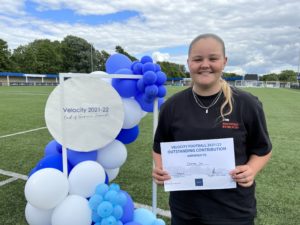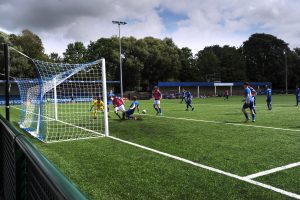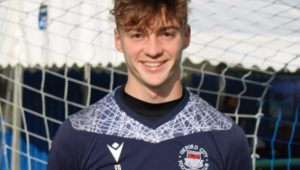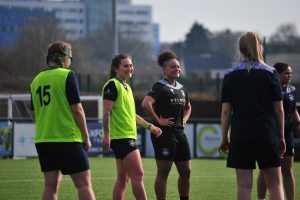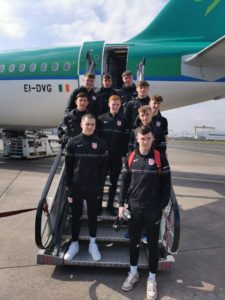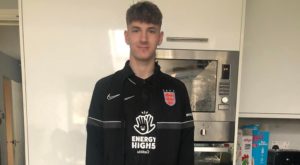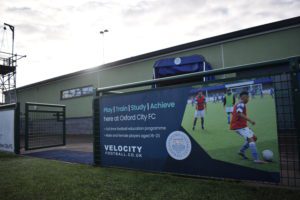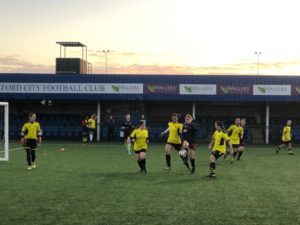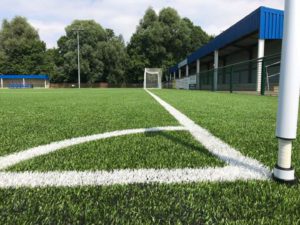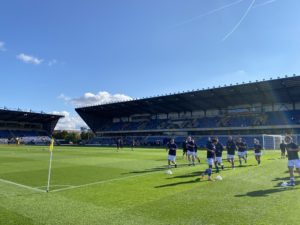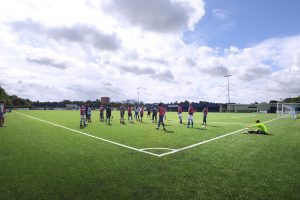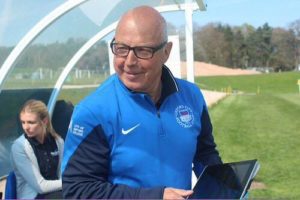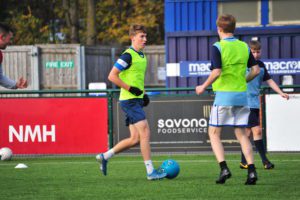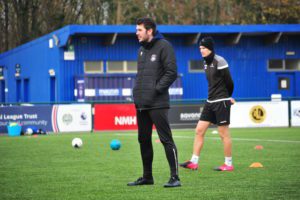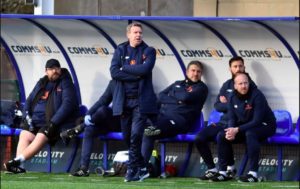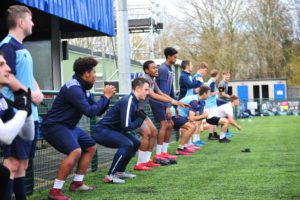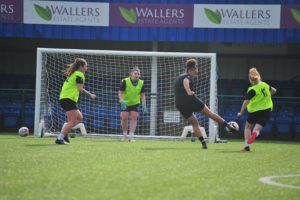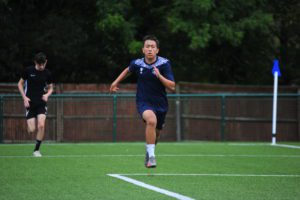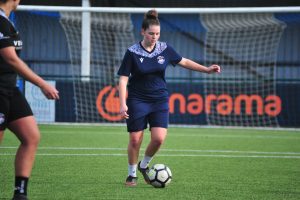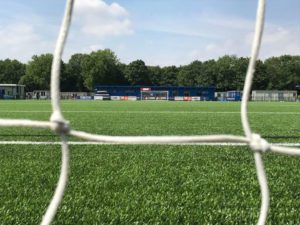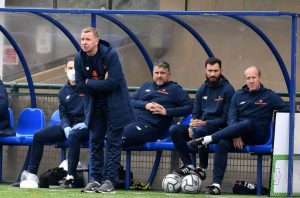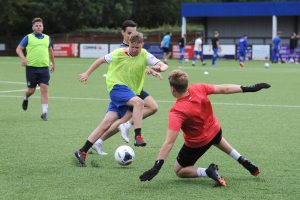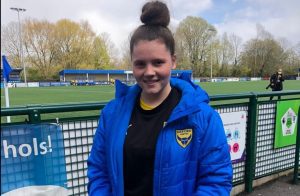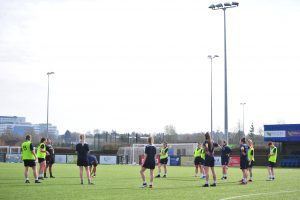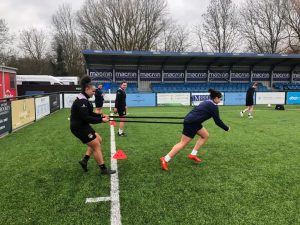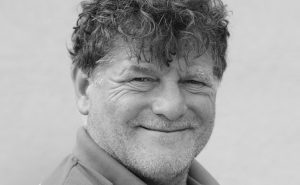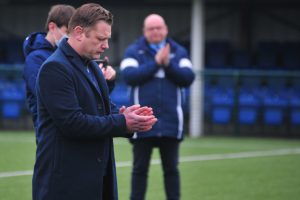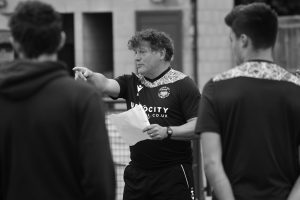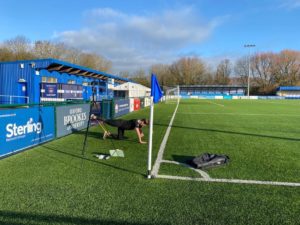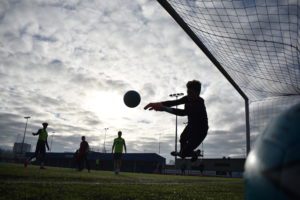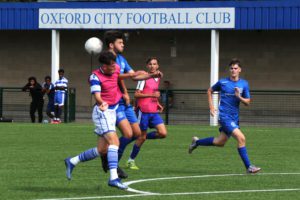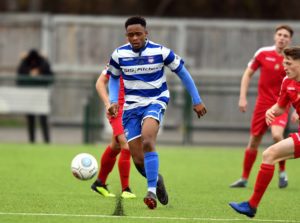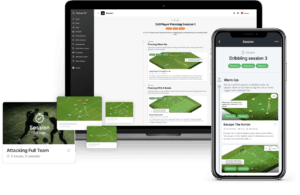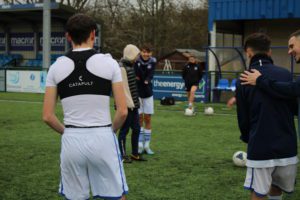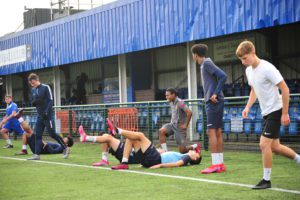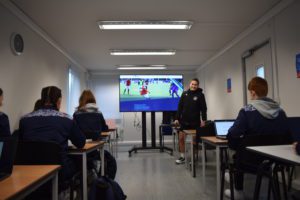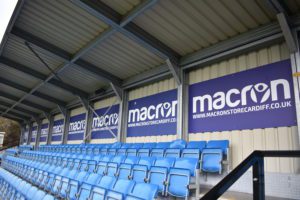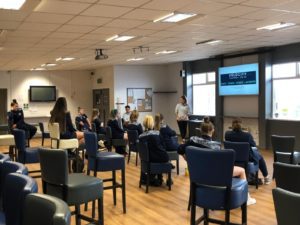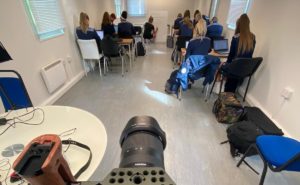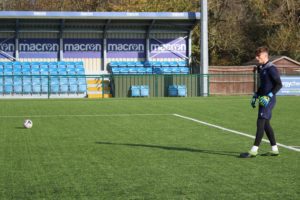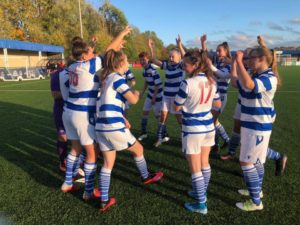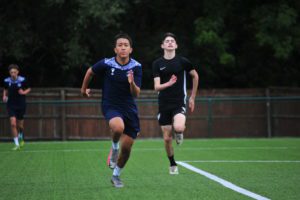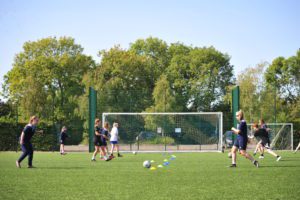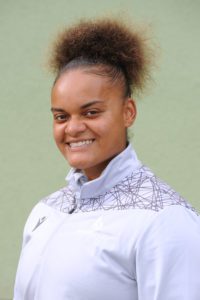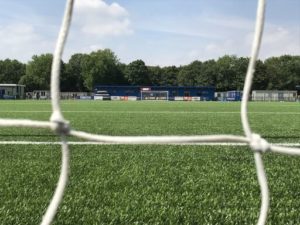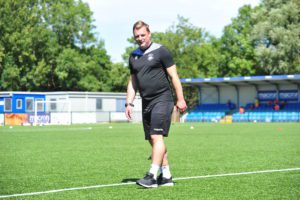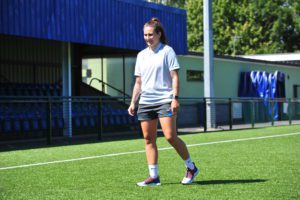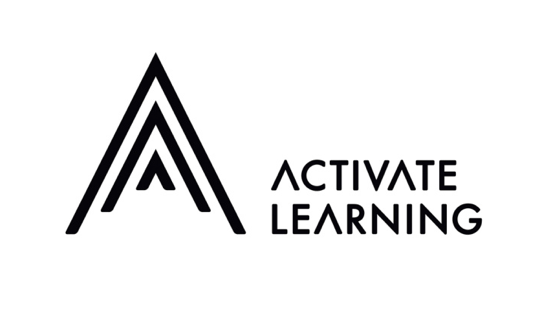A game-changing television deal worth an estimated £24m over three seasons will help to facilitate the development and provision of women’s football across the country.
That’s according to Lauren Haynes, Head Coach of Velocity Football’s full-time female programme and captain of Oxford United Women’s FC.
The deal will see Sky Sports show up to 44 live games per season across its channels with the BBC also broadcasting one match per round of fixtures. It has been heralded as a landmark moment for the women’s game by Kelly Simmons, the FA’s Director of the Women’s Professional Game.
But how can the deal impact positive change off the pitch as well as on it?

Exponential growth
Since the Football Association brought all women’s football under its control in 1993, opportunities and careers for females interested in sport have grown.
On the pitch, the Women’s Super League – England’s top-level competition – turned professional in 2018, eight years after it was established. In 2010, Sian Massey became the first female official to feature in a Premier League match when assisting Sunderland’s game against Blackpool.
And last year, the Football Association reached its target to double participation in a three-year period when a study confirmed 3.4 million females were playing football in England.
Increased provision
Before the COVID-19 pandemic, England fixtures attracted attendances ranging from 13,449 against Spain to 77,768 against Germany.
Naturally, household names have been formed. But many of the WSL’s star players launched their careers in America due to a lack of opportunity and provision in the UK.
England full-back Lucy Bronze, who was named FIFA’s Best Women’s Player in 2020, travelled to the States to combine her studies with football in 2009. Manchester United’s Alessia Russo and Arsenal’s Lotte Wubben-Moy followed the same path.
But growing professionalism in clubs across the country mean full-time education opportunities in the UK are growing.
Manchester City goalkeeper Karen Bardsley recently told the BBC: “If you would have asked some of these girls maybe four or five years ago whether they felt they would miss out on anything if they went to the States, they’d probably say no.
“If you ask people now, they would definitely say yes. Having the option to have an education would be a great part of the toolkit to keep players involved in the WSL. It would just be the icing on the cake.”
Developments in the UK mean crossing the Atlantic is no longer girls’ sole higher education option.

Education and its value
Sue Campbell, Baroness Campbell of Loughborough and Director of Women’s Football at the FA, was among those to underline the education opportunities available in the UK.
She said: “I don’t want to stop people going (to the US) for cultural reasons or different experiences, but I want them to look and see that they can get just as good an opportunity here as they would get anywhere else.
“When players get to the end of their careers, we want them to have an alternative. We want them to have the best possible chance to do well in life – not just well in football.”
England and Chelsea striker Bethany England also underlined the value of education while she studies for a degree in law.
She added: “By being in education I have learned I have a mad attention to detail. I can remember little quirky things that help me with my work as well as remembering tactics on the pitch.”
Velocity Football
In September 2020, Oxford City Football Club launched a new full-time education programme designed for young people who want to pursue a career in sport.
The BTEC, HNC and HND programmes combine football and sport business with academia and are suitable male and female students aged 16 to 23.
Velocity provides students with a unique opportunity to train, play, learn and achieve in football and education with the support of UEFA B License coaches, in-house personal trainers, sports therapists, strength and conditioning coaches and academic tutors.
First-year student Adele Davis was one of the first female students to enrol into the Velocity programme.
She said: “I find focusing during lessons very easy, it’s different to school. Lessons are broken up by our time outside training and we work in a relaxed environment where everyone has established a great team spirit.
“Importantly, though, we get the work done and do work hard.”

All careers explored
Velocity Football Head Coach Lauren Haynes joined the programme last summer.
The Oxford United Women’s captain is an FA Level 2 certificate coach and enjoyed previous spells with Arsenal, Aston Villa and Bristol Academy. Her rise in the sport ran parallel with progression of the women’s game and consequently she has established a strong understanding of the development pathways available.
“It’s well documented that women’s football is growing in popularity,” said Lauren. “But the TV deal that has been announced has the potential to take the game to the next level.
“If you speak to our students, many of them started playing football because of family influence or the media. Greater exposure of the Women’s Super League, particularly on terrestrial TV, will only inspire more girls to play football.
“I’m a strong believer that football is more than simply what happens on the pitch. There are several fantastic careers associated to the game which we educate students about in line with their studies.
“It’s an exciting time for the women’s game and to be part of this journey is a rewarding experience.”

